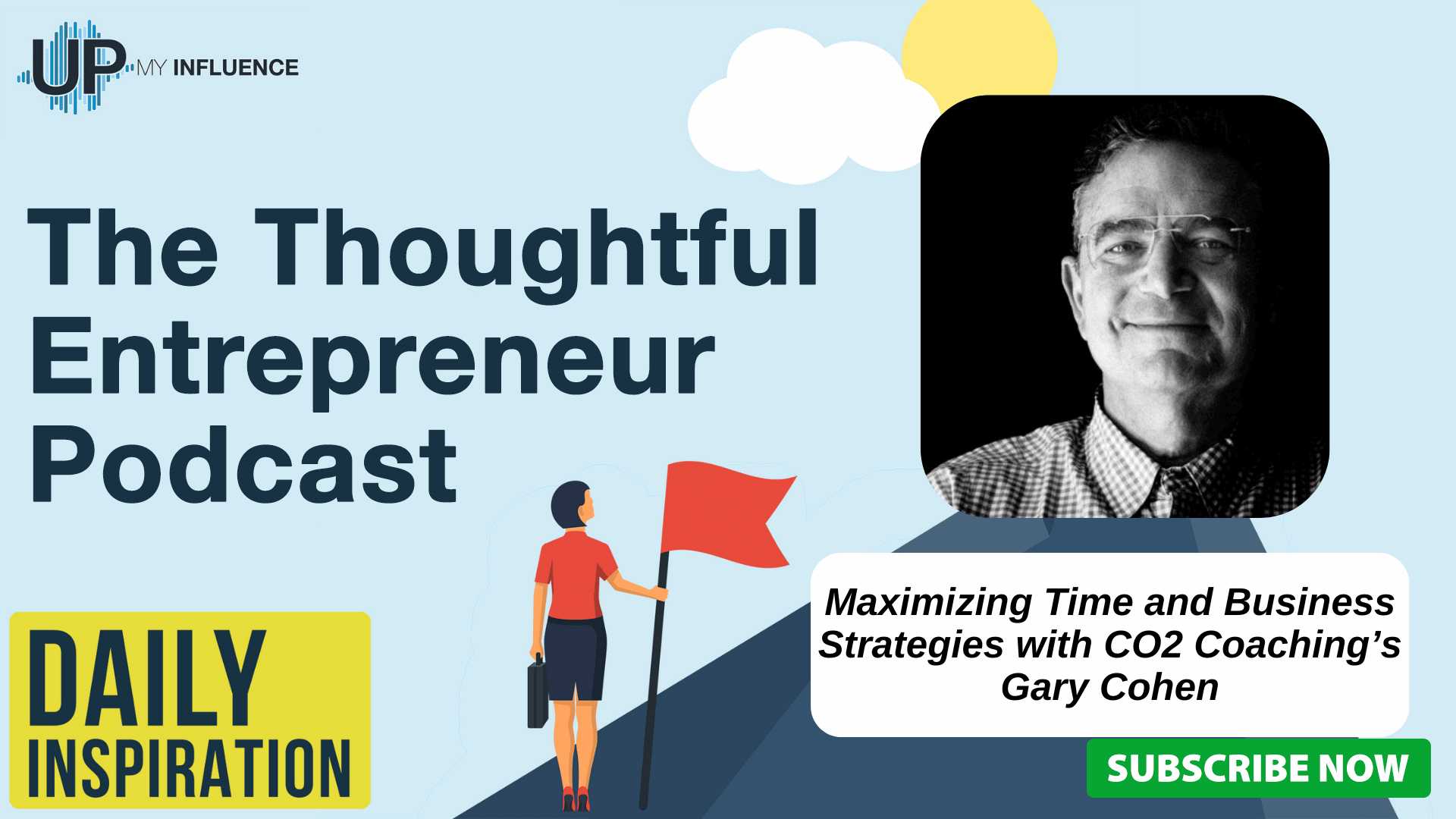THE THOUGHTFUL ENTREPRENEUR PODCAST
 The Value of Experience in Executive Coaching
The Value of Experience in Executive Coaching
In a recent episode of The Thoughtful Entrepreneur Show, host Josh Elledge engaged in a compelling conversation with Gary Cohen, the managing partner and executive coach at CO2 Coaching. The discussion delved into the nuances of executive coaching, particularly for CEOs and company presidents. Gary Cohen shared his wealth of leadership, coaching, and business strategy knowledge, offering listeners practical advice and profound insights. This blog post will distill the key themes and tips from the episode, providing a valuable guide for business leaders and entrepreneurs.
Gary Cohen highlighted the significance of practical experience in executive coaching, stressing that coaches who have held similar leadership roles can offer more relevant and actionable advice. He also introduced the CO2 Coaching framework, which focuses on helping clients reclaim their time by delegating or streamlining tasks. Additionally, Gary emphasized the importance of balancing cost reductions with revenue gains to ensure a sustainable business model. These strategies are crucial for effective time management and financial health, enabling leaders to concentrate on strategic initiatives.
The conversation also touched on fostering a culture of accountability and learning from failures. Gary discussed the role of leaders in setting clear expectations and holding team members accountable, which drives performance and alignment with organizational goals. He advocated for a blame-free culture that encourages innovation and continuous improvement. Furthermore, Gary underscored the necessity of emotional detachment in business decisions and the power of asking the right questions to engage and empower team members. By exploring coaching opportunities, business leaders can enhance their skills and drive their organizations to success.
About Gary Cohen:
Gary is famous for asking; he wrote the book on it. He probes his clients with the only kind of questions that can produce change: unexpected ones. From the client’s answers, this dedicated Minneapolis leadership coach offers not just insights but alternative courses of action.
“There always are several good roads to Rome,” he says. “The key is to identify the one that best fits both your head and heart.” He focuses on the destination–and not the possible curves in the road–for a simple reason: most obstacles are artificial, and the rest are in our heads. “Clear your head,” he believes, “and the obstacles disappear.” This may explain why Gary’s clients call him “eccentric in exactly the right way.” Gary has yet to meet a client who wants to be ordinary, and he helps them enjoy unusual success by employing unusual approaches.
CEO experience: Managing Partner and Co-founder of CO2 Partners, LLC (2004), an Executive Coaching and Leadership Development Firm. Founded ACI in 1989 with $4,000 and two employees, then grew 48 percent compounded annually for 12 years to over 2,200 employees and went public on the NASDAQ. ACI was one of Venture Magazine’s Top 10 Best Performing Businesses and Business Journal’s 25 Fastest Growing Small Public Companies, and Gary was an Entrepreneur of the Year finalist.
Board memberships: All Kinds of Minds, Harvard Alumni Club of Minnesota, IC Systems, Inc., Richfield Bank, ACI, Telecentrics,, Outward Bound National Advisory, HBS Alumni Club of Minnesota (Past President), Minnesota Zoo Foundation among others.
Author: Just Ask Leadership: Why Great Managers Always Ask the Right Questions (McGraw Hill 2009); articles for Business Week, Leader to Leader, and Forbes.
Clients: Unilever, Intel, Genentech, MetLife, Thermo-Fisher, and 100-plus entrepreneur-led businesses.
Education: University of Minnesota (B.A); Harvard Business School; Covey Leadership Center; Disney Leadership Institute; and Aspen Institute Crown Fellow.
About CO2 Coaching:
CO2 Partners, executive coaching, simply put, is group of experienced, entrepreneurial-minded executive coaches business coaches with complementary skills…and a shared passion for elevating others in their leadership journey.
Founded in 2004 by Gary Cohen, CO2 includes executive coaches and practitioners who understand the realities of leadership. That’s because we’ve all been there. Our intuition and “street smarts” lend a unique credibility and integrity to our work. It’s not about textbook theory. It’s about grounded, real-world experiences we generously share with clients.
More importantly, leaders and organizations see rapid and sustainable returns on their investment from their executive coach. Outcomes are measurable and meaningful. Our fresh perspectives uncover new possibilities, solve problems from different angles, and deliver the skills and courage you need to succeed – even when the summit looks insurmountable.
Apply to be a Guest on The Thoughtful Entrepreneur: https://go.upmyinfluence.com/podcast-guest
Links Mentioned in this Episode:
Want to learn more? Check out CO2 Coaching website at https://co2coaching.com/who-we-are/
Check out CO2 Coaching on LinkedIn at
https://www.linkedin.com/company/co2-coaching-llc
Check out Gary Cohen on LinkedIn at https://www.linkedin.com/in/garycohen
Don’t forget to subscribe to The Thoughtful Entrepreneur and thank you for listening. Tune in next time!
More from UpMyInfluence:
We are actively booking guests for our The Thoughtful Entrepreneur. Schedule HERE.
Are you a 6-figure consultant? I’ve got high-level intros for you. Learn more here.
What is your #1 Lead Generation BLOCKER? Take my free quiz here.
Want to learn more about all the podcasts managed by UpMyInfluence? Opt in here.


